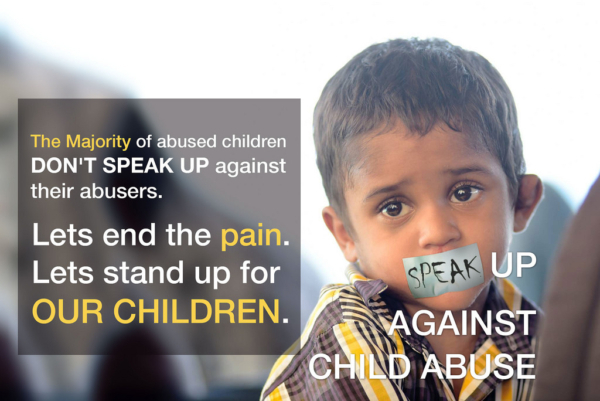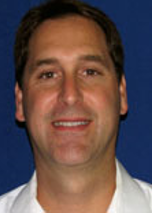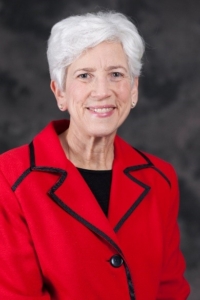

PSCP TRIFECTA
November 12, 2020 - November 13, 2020

THE FALL 2020 TRIFECTA IS SOLD OUT.
PSCP WILL OFFER ANOTHER TRIFECTA PROGRAM IN SPRING 2021.
PLEASE EMAIL PSCPADMIN@PHILADELPHIAPSYCHOLOGY.ORG TO BE ADDED TO THE INTERESTED PERSONS LIST FOR THE SPRING TRAINING.
PSCP TRIFECTA
Earn credits for all 3 mandatory workshops, Child Abuse, Suicide, and Ethics
Friday, November 13, 2020
ALL DAY TRAINING
Location: Online Seminar
Updated Child Abuse and Trafficking Recognition and Reporting Training for Mandated Reporters in Pennsylvania 2019-2021 Update
Presented By: Ron Fischman, Ed.D.
Registration 7:45am Program 8:15am to 11:15am
3.0 CE credits
Act 31 Credits
Act 48 Credits Available
In accordance with a Pennsylvania mandate for all health care professionals and funeral directors, PSCP: The Psychology Network presents this three hour workshop to discuss the obligation of mandated reporters and moral obligation of permissive reporters to report reasonable suspicions of child abuse and child labor and
sexual trafficking.
Objectives:
- Discussing the differences between Child Protective Services and General Protective Services
- Describing components of Child abuse and Exclusions to Child Abuse.
- Listing common signs of Child Abuse and Sexual abuse
- Describing Mandatory and Permissive Child Abuse Reporters and penalties for not reporting.
- Describing Sex and Labor Trafficking and Methods of Reporting.

Between 1975 and 1982, Dr. Fischman supervised a school psychology training clinic at Temple University. He has taught graduate courses in special education and psychology at Temple University, Pennsylvania State University, Thomas Jefferson University and Cabrini College. From 1975 until 2012, he had a private practice in Norristown, PA and in Richboro PA. From 1986 until 2009, He is a Fellow of both PSCP and PPA.
At the present time, Dr. Fischman, a former PSCP president and Chair of the continuing Education Committee, is serving as the membership chair of the Philadelphia Society of Clinical Psychologists. He has served on the School Psychology Committee of PPA and is a member of APA and NASP.
Suicide: Risk factors, protective factors, and safety planning
Presented By: Kyle Holsinger, Psy.D.
Registration: 11:15am Time: 11:45am to 12:45pm
1.0 CE Credits
Act 48 Credits Available
The current presentation will highlight common risk factors and warning signs of suicide in a variety of populations and ages. In addition, protective factors and deterrents of suicide will be explored and discussed. Finally the program will focus on a discussion of safety planning theory and incorporating a safety plan into patient treatment goals and practice.
Objectives:
- Able to describe and articulate risk factors and Warning Signs of suicide.
- Able to list the steps necessary to assess a variety of populations at risk for suicide.
- Able to articulate ways to manage and treat patients who are at risk of suicide.
- Able to describe and implement a Safety Plan in treatment with patients at risk for suicide.
- Able to describe and incorporate suicide theory into assessment and practice.
 Kyle Holsinger, Psy.D., is a licensed psychologist in the state of Pennsylvania, and he received a Doctorate of Psychology degree from the Philadelphia College of Osteopathic Medicine in 2005. He is the Clinical Director for Delaware County Professional Services (DCPS). DCPS is an outpatient mental health practice with 60 therapists and psychiatrist, servicing all ages and providing individual, couples, and family therapies. He developed the practice’s Primary Health Care Integration program, and has collaborated with numerous internal medicines, family medicine and pediatric offices. DCPS currently has therapists inside of 10 primary care physician offices. Dr. Holsinger has a special interest in treating populations with chronic medical conditions.
Kyle Holsinger, Psy.D., is a licensed psychologist in the state of Pennsylvania, and he received a Doctorate of Psychology degree from the Philadelphia College of Osteopathic Medicine in 2005. He is the Clinical Director for Delaware County Professional Services (DCPS). DCPS is an outpatient mental health practice with 60 therapists and psychiatrist, servicing all ages and providing individual, couples, and family therapies. He developed the practice’s Primary Health Care Integration program, and has collaborated with numerous internal medicines, family medicine and pediatric offices. DCPS currently has therapists inside of 10 primary care physician offices. Dr. Holsinger has a special interest in treating populations with chronic medical conditions.

Best Practice in Ethics
Presented By: Linda K. Knauss, Ph.D., ABPP
Registration: 1pm Program: 1:30pm to 4:30pm
3.0 CE Credits
Act 48 Credits Available
Today’s clinical practice necessitates consideration of a myriad of ethical issues. How well do you balance conflicts between personal and professional values, your duties, and current liability risks? The purpose of this workshop is to provide practicing mental health professionals with guidance in order to negotiate many of these issues. Rather than focus on what psychologists need to do to avoid punishment, this workshop will focus on helping psychologists think through challenging ethical dilemmas.
Privacy, privileged communications, and confidentiality are cornerstones to effective psychotherapy, and areas that are of primary concern to mental health professionals. Challenges to these areas will be discussed as well as the implications of HIPAA. Informed consent will be discussed as a form of collaboration and shared decision making. In addition, ethical dilemmas related to the client-therapist relationship will be presented. These include: use of self-disclosure, accepting gifts, therapeutic touch, non-traditional settings for therapy, and non-sexual relationships after termination. Participants are invited to discuss ethical dilemmas from their own practices.
Objectives:
- Assess their current ethical compliance.
- Discuss how to respond appropriately to ethical dilemmas related to the client-therapist relationship.
- Apply ethical decision-making skills.
- Anticipate and resolve ethical challenges in their practice.
 Linda K. Knauss, Ph.D., ABPP, is a professor at Widener University’s Institute for Graduate Clinical Psychology. She has served as the Chair of the Ethics Committees of the American Board of Professional of Professional Psychology, the American Psychological Association, the Pennsylvania Psychological Association and as Co-chair of the Philadelphia Society of Clinical Psychologists’ Ethics Committee. Dr. Knauss has authored several book chapters and journal articles on ethics and has taught ethics at many local universities as well as continuing education workshops on a variety of topics in ethics.
Linda K. Knauss, Ph.D., ABPP, is a professor at Widener University’s Institute for Graduate Clinical Psychology. She has served as the Chair of the Ethics Committees of the American Board of Professional of Professional Psychology, the American Psychological Association, the Pennsylvania Psychological Association and as Co-chair of the Philadelphia Society of Clinical Psychologists’ Ethics Committee. Dr. Knauss has authored several book chapters and journal articles on ethics and has taught ethics at many local universities as well as continuing education workshops on a variety of topics in ethics.
Dr. Knauss is the past-president of the Pennsylvania Psychological Association, the Pennsylvania Psychological Foundation, and the Philadelphia Society of Clinical Psychologists. She was also a member of the American Psychological Association’s Council of Representatives (2000-2006; 2013-2018 representing Pennsylvania). Dr. Knauss is the recipient of a 2015 APA Presidential Citation for her work in APA as well as the recipient of the 2002 Ethics Educators Award presented by the Pennsylvania Psychological Association’s Ethics Committee, and the recipient of the 2004 Pennsylvania Psychological Association Distinguished Service Award.
Dr. Knauss maintains a private practice where she sees children, adolescents, and adults.
PSCP: The Psychology Network is approved by the American Psychological Association to sponsor continuing education for psychologists. PSCP: The Psychology Network maintains responsibility for this program and its content.

